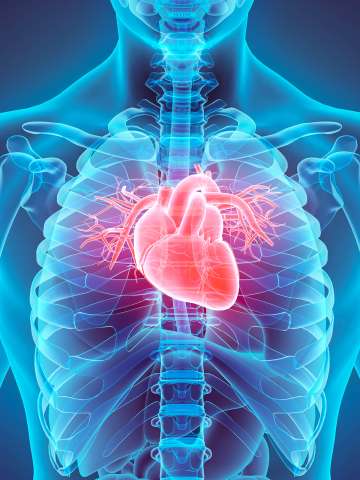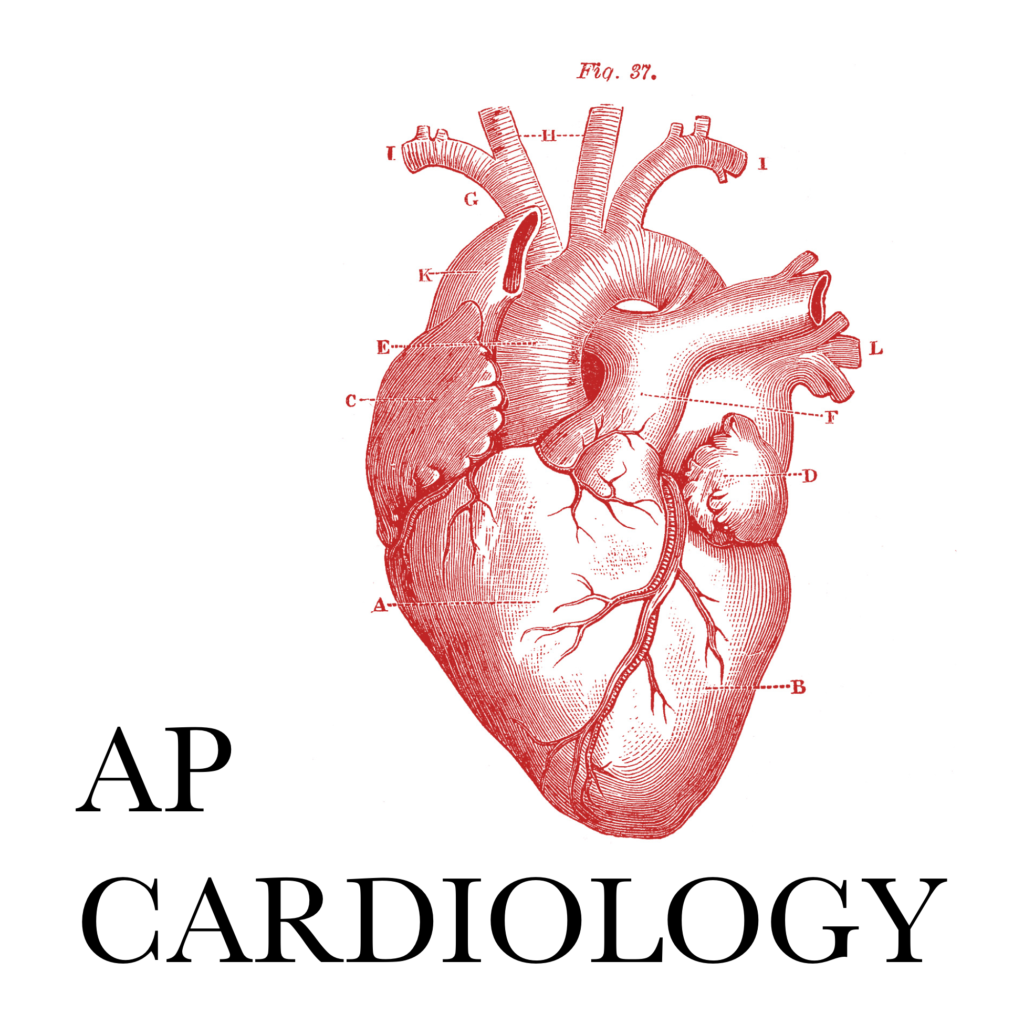Tackling hypertension head-on with modern Cardiology approaches
Recognizing the Importance of Cardiology in Modern Healthcare Solutions
Cardiology plays an important duty in modern medical care, particularly as cardiovascular disease remains to be the leading reason for mortality worldwide. Advancements in diagnostics and treatment have transformed individual treatment, allowing earlier treatments and enhanced results. The shift towards preventive cardiology equips individuals to manage their wellness proactively. As modern technology remains to progress, the combination of ingenious options may further redefine cardiology's influence on public health, motivating a better assessment of emerging trends and their effects.
The Frequency of Heart Condition and Its Effect On Public Wellness
Heart illness remains the leading reason of death globally, its influence prolongs much beyond individual clients to affect public wellness systems and economic climates. The high prevalence of heart problem puts a substantial pressure on healthcare sources, requiring raised funding for therapy, prevention, and rehabilitation programs. Public health campaigns should resolve risk variables such as obesity, smoking cigarettes, and inactive way of livings, which add significantly to the rising occurrence of heart conditions.Moreover, the economic worry connected with cardiovascular disease is enormous, incorporating not only straight clinical prices yet also indirect expenditures associated with lost performance and early mortality. Neighborhoods encounter challenges in handling these prices, commonly resulting in variations in medical care access and outcomes. As the population ages and lifestyle-related risks continue to intensify, the necessity for reliable cardiology interventions becomes critical. Attending to heart condition is not just an issue of specific wellness yet additionally a critical public health priority.
Advances in Cardiac Diagnostics and Imaging Techniques
Current innovations in heart diagnostics and imaging techniques have actually reinvented the area of cardiology, improving the capability to check and spot heart problem. Techniques such as heart MRI, CT angiography, and echocardiography have actually come to be progressively sophisticated, offering in-depth pictures of cardiac frameworks and features. These techniques enable the very early identification of problems like coronary artery illness, heart failure, and valvular disorders.Moreover, advancements in non-invasive diagnostics, such as wearable modern technology and remote surveillance gadgets, have encouraged individuals and doctor. These tools promote real-time tracking of heart rhythms and various other crucial indications, leading to prompt treatments. In addition, expert system is being integrated right into imaging analysis, boosting accuracy and performance in diagnosis.
Innovations in Therapy Options for Heart Issues
Recent improvements in cardiology have caused significant advancements in therapy choices for heart disease. These consist of sophisticated medical methods that enhance procedural outcomes and arising drugs that provide brand-new avenues for therapy. As the area evolves, these advancements play a crucial duty in improving individual treatment and outcomes.
Advanced Surgical Techniques
Developments in medical strategies have transformed the landscape of cardiology, using brand-new hope for clients with heart problems. Minimally intrusive treatments, such as catheter-based treatments, have actually significantly lowered recuperation times and healthcare facility keeps. Strategies like robotic-assisted surgery improve accuracy, permitting cosmetic surgeons to navigate intricate anatomical structures with better precision. Furthermore, developments in imaging modern technology promote real-time visualization throughout treatments, boosting outcomes. Transcatheter aortic shutoff replacement (TAVR) exemplifies a development in dealing with aortic stenosis, allowing valve replacement without open-heart surgical treatment. Furthermore, hybrid methods that integrate surgical and catheter-based approaches give customized options for numerous cardiac problems. These advanced medical strategies not only improve individual security however additionally increase therapy choices, highlighting the important function of development in modern cardiology techniques.
Arising Therapies and drugs
As the landscape of cardiology remains to evolve, arising treatments and medicines play a critical duty in improving treatment alternatives for heart conditions. Innovations such as unique anticoagulants and advanced lipid-lowering agents have actually transformed the monitoring of cardiovascular conditions, substantially decreasing individual morbidity and mortality. In addition, the advancement of genetics therapies and regenerative medication provides promising opportunities for treating conditions formerly deemed permanent. Medical tests are continually disclosing the effectiveness of these therapies, pressing the limits of typical treatments. The integration of digital health and wellness modern technologies facilitates tailored medicine, enabling for customized therapy strategies based on genetic and lifestyle aspects. Jointly, these innovations underscore the dynamic nature of cardiology, enhancing individual end results and redefining standards of care in modern health care.
The Duty of Preventive Cardiology in Client Care
Precautionary cardiology plays a vital duty in person care by concentrating on the identification of threat variables that add to cardiovascular disease. Via way of living adjustment strategies and early discovery methods, doctor can effectively reduce the incidence of cardiovascular occasions - Dr Garcia. This positive technique not just enhances client results but additionally promotes long-term wellness
Threat Variable Recognition
While cardiovascular conditions continue to be a leading reason of morbidity and mortality worldwide, efficient risk variable recognition works as a cornerstone of precautionary cardiology. Determining risk variables such as hypertension, household, hyperlipidemia, and diabetes mellitus background is important for very early intervention. Medical care experts utilize numerous evaluating approaches to evaluate these elements, enabling for tailored preventative procedures. In addition, understanding an individual's way of life choices, such as smoking cigarettes and physical lack of exercise, even more informs danger assessments. This comprehensive analysis allows clinicians to develop tailored care plans focused on mitigating threats. By focusing on risk factor recognition, healthcare systems can improve individual outcomes and decrease the total burden of heart diseases, inevitably adding to improved public health and wellness strategies and resource allowance.
Way Of Living Modification Methods
A multitude of research studies highlights the important role of lifestyle adjustment approaches in decreasing heart disease risk. These techniques include dietary adjustments, boosted exercise, cigarette smoking cessation, and weight administration. By embracing a heart-healthy diet plan rich in fruits, vegetables, whole grains, and lean proteins, individuals can lower cholesterol levels and blood pressure. Routine physical task reinforces the heart and boosts total cardio wellness. In addition, giving up smoking significantly minimizes the danger of heart illness and improves healing rates for those with current conditions. Weight management further adds to cardiovascular health by mitigating various other threat aspects such as diabetes mellitus and hypertension. Implementing these lifestyle transforms not just advertises private well-being but additionally works as a keystone of preventative cardiology in individual care.
Early Discovery Methods
Way of life modifications significantly add to minimizing heart disease risks, yet they are most efficient when matched with early discovery strategies. Precautionary cardiology emphasizes the value of determining potential heart concerns before they escalate into serious problems. Techniques such as blood stress tracking, cholesterol testing, and advanced imaging technologies like echocardiograms play crucial duties in reviewing cardio health. Biomarkers and hereditary screening likewise boost the precision of very early detection, allowing for customized preventive approaches. Regular heart risk examinations equip doctor to intervene proactively, possibly preventing cardiac arrest and strokes (Cardiology care). By incorporating these early detection approaches right into routine treatment, people can benefit from timely way of living interventions and targeted treatments, eventually enhancing end results and enhancing top quality of life
Integrating Technology Into Cardiology Practices
As developments in technology remain to reshape different fields, the assimilation of ingenious devices and systems right into cardiology practices has ended up being necessary for improving person treatment and outcomes. Telemedicine platforms permit cardiologists to keep track of individuals from another location, boosting accessibility to care while decreasing the problem on medical care centers. Wearable tools, such as smartwatches, make it possible for continual heart price surveillance, alerting both patients and doctors to prospective issues in real-time. Additionally, expert system (AI) is being utilized to analyze large amounts of cardiac information, aiding in very early diagnosis and individualized treatment plans. Advanced imaging techniques, including 3D echocardiography, boost visualization of heart frameworks, causing a lot more accurate interventions. Electronic wellness documents (EHRs) enhance individual details management, making sure that cardiologists have immediate access to important data. Together, these technological advancements are changing cardiology, promoting proactive monitoring and enhanced health and wellness end results for patients with cardiovascular problems.
The Value of Client Education And Learning and Interaction
Patient education and involvement play an essential role in the administration of cardio wellness. By equipping people with knowledge regarding their problems, therapy choices, and way of life changes, health care service providers go to this web-site encourage individuals to take an active function in their treatment. This proactive approach can result in improved adherence to recommended drugs, dietary changes, and workout routines, ultimately minimizing the threat of complications.Engagement also fosters a strong patient-provider connection, urging open communication and count on. When individuals feel notified and included, they are more probable to voice concerns and ask questions, which can cause far better clinical results. Additionally, academic resources, such as workshops or digital platforms, can improve understanding and promote self-management methods. Generally, focusing on person education and learning and interaction is important for enhancing cardiovascular health, improving high quality check my blog of life, and decreasing health care costs connected with heart diseases.
Future Trends in Cardiology and Their Potential Impact

Often Asked Inquiries
What Way Of Living Adjustments Can Decrease Cardiovascular Disease Danger?
The present inquiry addresses way of living adjustments that can substantially lower cardiovascular disease danger. Cardiology. Taking on a balanced diet, taking part in normal exercise, maintaining a healthy and balanced weight, handling anxiety, and avoiding cigarette can significantly enhance cardio health and wellness
How Can I Recognize Early Signs of Heart Problems?
Identifying very early indications of heart troubles involves surveillance symptoms such as upper body pain, shortness of breath, exhaustion, and irregular heart beat. Timely recognition of these signs can prompt essential clinical assessment and intervention for far better outcomes.
What Are the Distinctions Between Cardiologists and Cardiac Surgeons?
The differences in between cardiologists and cardiac surgeons exist in their functions; cardiologists primarily identify and manage heart disease with non-invasive approaches, while cardiac surgeons do surgical procedures to deal with structural heart issues. Each plays a vital, unique duty.

Exactly how Frequently Should I Get My Heart Health Checked?
The frequency of heart checkup varies based on private threat factors. Typically, adults ought to undergo examinations each to 2 years, while those with present conditions might require more regular analyses as advised by healthcare professionals.
What Duty Does Genetics Play in Heart Condition Threat?
Genes significantly influences heart illness threat, with domestic patterns indicating next inherited conditions. Certain genes can incline individuals to hypertension, cholesterol concerns, and other cardiovascular problems, highlighting the relevance of hereditary testing in assessing heart wellness. Heart illness stays the leading cause of fatality internationally, its impact extends much past private patients to affect public wellness systems and economies. Public health campaigns need to attend to danger aspects such as obesity, smoking, and inactive lifestyles, which add significantly to the increasing occurrence of heart conditions.Moreover, the economic concern linked with heart illness is enormous, encompassing not only direct clinical prices however also indirect expenses associated to lost performance and premature mortality. Preventative cardiology plays a necessary function in person care by focusing on the recognition of risk aspects that contribute to heart illness. Artificial intelligence (AI) and equipment learning are enhancing diagnostics and client surveillance, allowing early detection of heart diseases. The differences in between cardiologists and heart specialists lie in their roles; cardiologists largely handle and diagnose heart problems through non-invasive methods, while cardiac doctors execute medical procedures to correct architectural heart problems.